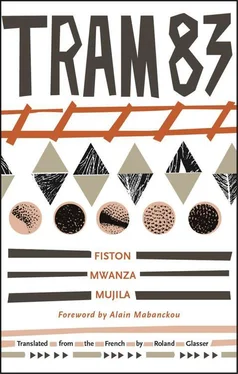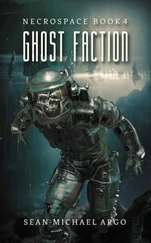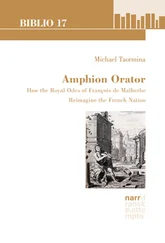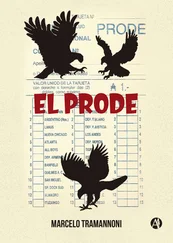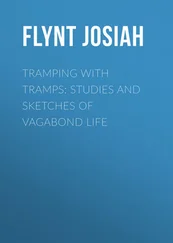Once inside, Requiem scattered his men to go reconnoiter. The darkness and a constant fear of receiving a walloping made the procedure difficult to follow. They combed a few buildings, smashing them open with the butts of their guns. Not much to speak of, just some old clothes left by fugitives, and garbage bags half full of cow dung. They continued their search.
“Low content,” remarked Requiem, who was already losing his temper.
Lucien, holding a gun for the first time, was at his wits’ end, as he begged Mortal Combat and Invincible Measles to convince Requiem to hightail it. But the Negus persisted in checking out the premises.
“Perhaps they’ve already removed my merchandise. If we trace an imaginary line, maybe we’ll run into another group all loaded up, and then we’ll teach them to comply without being asked twice.”
He lit a cigarette rolled from cassava leaves.
They went down into the second crater in the center of the Polygon, dug away, Zairian style, extracted two sacks of gravel to wash close by, exited left from the hole, and ran straight into a horde of desperados heavily armed with machetes. Greetings peppered with irony, furtive glances, they faced each other down, before deciding it wasn’t worth laying into each other for sacks with no obvious content.
In the end, after being chivvied by Lucien and his friends into turning back, Requiem declared that it was amateurish to go carting their weapons around, and suggested burying them and returning there that very evening, all fired up to loot the whole place.
“Let’s head back to the Tram.”
They ended their night of transgression at Tram 83 to the dismally tragic lamentations of the prima donna, the Castafiore, the Railroad Diva.
Tram 83 had a soft spot for the Negus. He stayed the same on all his fronts. He knew what he was doing, that you can’t invent the wheel twice, that there’s no point fretting, that the rules of the game are clearly defined, and that the main thing is to live off anything that falls into your hands. “The tragedy is already written, we merely preface it.” From the moment this motto began to resonate consciously in his mind, he never held back from following his heart. He was simple and honest even in his mischief.
Requiem was the opposite of Lucien, who irritated the whole of the Tram with his waffling, a hypocrite scribbling on scraps of paper instead of telling us the truth to our faces, and lazy regarding the girls. He tired us out, Lucien did. He was too much! What’s the point of playing the intellectual all the time if the equation must remain the same? The roads that lead to truth and honesty are cut by flooding, filth, dog turds, lies, and blackouts, but why did he obstinately maintain his belief that a better world was possible? Why did he strive to reduce humanity to the dreams and quotations he gleaned on the pages of his texts? It’s called cowardice, perhaps even amnesia, or indeed a combination of the two. The world is beyond redemption, as Requiem put it. But supposing … Putting aside our personal feelings, perhaps Lucien was right. Let’s think about it. What would we do if we found ourselves in the shoes of this poète maudit ? Requiem’s answer: “The tragedy is already written, we merely preface it. So let us preface.”
The Tram operated twenty-four-seven. They hung out there touching up titties, smoking, and drinking until around two in the afternoon. Lucien, who couldn’t stand it anymore, left the bunch earlier. He had concocted an explosive cocktail: wine + vodka + lemonade + whiskey brought in from Beach Ngobila.
“Do you have the time?”
Incapable of walking, Requiem let Lucien return to the flat on his own. He vomited, reeled … A desperado saw him back home in exchange for a few coins.
Ideas to nourish his texts abounded. How, for example, to halve the characters of his theater piece without trashing the plot? Why not structure the text into two major movements, The Burnt Mornings and The Weeping Willows, to avoid losing historical credibility? Deep within himself, he hefted the monologue Lenin would deliver when told that Napoleon had left for Saint Helena accompanied by Mao Zedong. He tried to write in his notebook by any means. Waste of effort. His head spun. His limbs gave way. He remembered his wedding day. He rolled about on his miserable bed like someone suffering from syphilis. 4:10 P.M. He eventually fell asleep somehow.
Immediately a series of nightmares. Nightmare 1: a locomotive crammed full of minerals makes an infernal drone as it leaves platform 18 for horizons unknown. Nightmare 2: his grandfather asks him to jump into the first boxcar, otherwise “you’ll die like a homeless dog for wanting to hang on to a town that is no longer suited to you.” Nightmare 3: dissident rebels confront striking students allied with diggers beneath a hail of stones not far from the Tram. Nightmare 4: child-soldiers ransack the shops of the City-State. Nightmare 5: soldiers pursue single-mamas, crackling, trucks, screams, firing into the air. Nightmare 6: suicidals break into the bank belonging to the tourist owner of the sheds opposite Hope Mine. Nightmare 7: a rape, some temple forecourt. Nightmare 8: a rape, Fanatics Avenue. Nightmare 9: a rape, platform 7. Nightmare 10: a gang rape, blowjobs, and pitched brawls, Boulevard …
He woke up around ten in the evening. Hurried. A cold shower.
Past eleven, just time to read his texts, then a phone call from Paris, Métro Clignancourt.
“Where are you at with your piece on Lumumba? I’m killing myself to get the necessary contacts.”
Lucien tried to reassure him.
“Be patient, a few commas and I’ll send you the text.”
His friend also wanted him to write an article about Abderrahmane Sissako’s latest film. Lucien paused, before deciding.
“No, I don’t have enough time.”
He remembered having watched it just before he left for the City-State.
“Please!”
Lucien rejected the request. But his friend stuck to his guns.
“You know, the film was hailed by the international critics at Cannes.”
“But.”
Lucien reluctantly agreed.
He found it a real job to get the first lines down on paper. He identified with the main character, a certain Abdallah who shows up in a small town to await his departure for Europe and who is obliged to live in isolation since he’s separated from the inhabitants by a language he doesn’t understand.
He got down to the task. Impossible to continue the article. The verbs slipped from his fingers. The prepositions lay in wait then skipped out on him. The subordinate clauses screamed their independence. The adjectives frowned and took to the rails of oblivion.
A phone call.
“Requiem, my merchandise is sacred!”
A feeling of guilt overcame him. He shouldn’t have left the Back-Country, he told himself, what a foolish thing I’ve done! He could have stayed and ceased his misadventures with littérature engagée , or had his palm greased — there is no lack of opportunities for potential seasonal writers: for each political regime, you produce your literature.
You write an epic poem about the hairstyle of the president’s wife, they give you a house; a monologue rehashing the dreams of the Minister of Divination, Clairvoyance, and Prophecies, they buy you a trip to Venice; a novel about the president’s childhood, they appoint you Minister of Agriculture and Bovine Farming. Too late! He gathered chance snippets of sentences and arrived at a parturition he hastened to send off. His computer boycotted the transposition of the document to PDF. He bustled about. Bad luck, blackout! He’d forgotten that it was a Thursday, that the power had to meet the needs of a small local mining firm, that all the residents knew this, and that they had zero right to make the protests that, incidentally, were prohibited across the entire national territory. An idea came to him: maybe light a candle and start another text? Yes. Where to begin? He wrote a series of arabesques that he tried to read aloud. At twelve o’clock, the Negus turned up with three baby-chicks barely twelve years old.
Читать дальше
